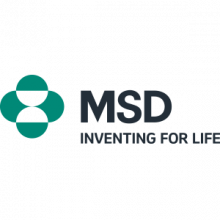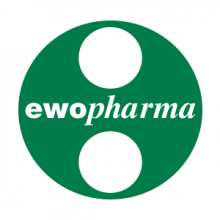Stem cells in treatment of Crohn’s disease?
Source: ibdcrohns.about.com
Researchers around the world are looking for ways to use stem cells to treat diseases for which an effective treatment is currently unknown. In the USA, Italy and Spain, they also focused on the use of stem cells in the treatment of Crohn's disease. The results of this research show a success of this treatment even 6 years after its termination, when 80% of patients with Crohn's disease treated with their own stem cells achieved remission.
Stem cell therapy is relatively intensive – patients had to be hospitalised for several weeks in preparation for the whole procedure. They first underwent chemotherapy to weaken their immune system and cause the stem cells to be released into the blood. Subsequently, the stem cells were collected from the blood and preserved by freezing. Patients underwent immunosuppression again and were later transplanted with their own stem cells. This process caused a certain "reset" of the immune system and a subsequent slowdown or even complete cessation of the inflammatory process.
However, it should be emphasised that research into the use of stem cells in treatment of any disease is still only in the beginning stages. Their use in treatment of patients with Crohn's disease will have to be preceded by long-term research and intensive testing on larger samples of patients – volunteers. However, it appears that stem cells will play an important role in the future in the treatment of many diseases for which we do not currently know a cure. Today, however, their use is still considered rather controversial and questionable.
Omega 3 fatty acids will not help us
Source: JAMA
Have you ever read anywhere that Omega 3 fatty acids will help you and reverse the unfavourable course of a disease such as Crohn's disease (Morbus Crohn)? That’s not true!
Older studies have led to uncertain outcomes showing a possible beneficial outcome in the treatment of inflammatory bowel disease, somewhat "promotionally" and without clear evidence.
However, a new study (Epan's Program – led by Brian G. Feagan, M.D.) combined with several years of research (since 2003) has shown that this is not the case and that fatty acids are essentially interchangeable with placebo.
Omega 3 fatty acids are essentially unsaturated fatty acids obtained from marine fish, which have a beneficial effect on inflammatory diseases such as e.g. rheumatoid arthritis. Therefore, a beneficial effect on patients in relapse of MC case was assumed as a preventive component of treatment in patients in remission. There were essentially no differences in the large groups of patients (from all over the world: Canada, Europe, Israel, US) with MC in remission who received placebo and omega 3 fatty acids! The percentages of patients taking placebo and those with omega 3 fatty acids were almost the same, which called into question any considerations of the "miracle properties" of the product...
The role of proteins in inflammatory bowel diseases
Source: TASR
Swiss researchers from the University of Bern have found that a protein called LRH-1 protects the body against severe intestinal diseases.
It is a protein that regulates the production of other inflammatory inhibitory hormones in the intestines. Examined patients diagnosed with Crohn's disease and ulcerative colitis had reduced LRH-1 protein in the diseased tissues.
Aspirin reduces the risk of bowel cancer
Source: TASR
Aspirin reduces the risk of bowel cancer, U.S. researchers at Dartmouth Medical School have shown that the main component of aspirin - acetylsalicylic acid, reduces the risk of colon cancer by 40%, intestinal polyps by 19%. This was announced by the pharmaceutical concern Bayer.
The research involved 1,121 men and women whose intestinal polyps were surgically removed. Intestinal polyps are initially benign tumours, but untreated ones can turn malignant.
After surgery, some patients received placebo for three years and some 325 or 81 milligrams of aspirin daily. At the end of the study, the researchers found that 47% of the patients taking placebo had developed intestinal polyps again.
In the small dose group of aspirin, only 38% of patients were affected. The risk of developing colon cancer was reduced by 40% compared with 19% in patients who received a daily dose of 325 milligrams of aspirin.
Researchers believe that the effect of aspirin is related to its ability to prevent the production of prostaglandins. It is in tumours that the concentration of these hormone-like substances is very high.
Bowel cancer is the second most common cause of death among cancers. There are about 850,000 new cases worldwide each year.
Although there are good chances of recovery if diagnosed early, 48,000 people die of colon cancer each year in the United States alone. Risk factors for the disease include, but are not limited to, malnutrition, excessive alcohol consumption and lack of exercise. Gene defects also play a role.
Advice for patients with MC/UC
Authors: Prof.Dr.J. Scholmerich, Dr. P. Hoppe-Seyler, Prof. Dr. Martin Lausen
Here are some basic tips for patients with Crohn's disease and ulcerative colitis.
- See your doctor regularly, even if you do not have any problems. However, if you have severe symptoms of disease activity, you should visit the relevant gastroenterology clinic as soon as possible to decide in time on the most appropriate treatment.
- Consult the right diet for you. Visit a nutritionist.
- If you are prescribed long-term treatment, make sure you are taking the medication as recommended. Do not stop taking your medicine without your doctor's knowledge. Learn about possible side effects of medicines.
- Learn to recognise the warning signs before an acute flare-up. Patients with ulcerative colitis should notice the appearance of loose stools or bloody diarrhoea, accompanied by stomach pain and general symptoms such as fatigue and decreased performance. The following symptoms should be noted in Crohn's disease: abdominal pain, weight loss, changes in stool consistency (diarrhoea or constipation). Extraintestinal symptoms such as joint pain, inflamed eyes, skin or mucous membranes, back pain and kidney pain may be other warning signs in both diseases. If any of these symptoms occur, see your doctor! These symptoms may not always be caused by chronic inflammatory bowel disease. They are more often caused, for example, by an unsuitable diet (excessive consumption of fruit - for example, may easily cause diarrhoea). It can also be the result of an intestinal infection that can also affect patients with chronic inflammatory bowel disease.
- Try to find out as much information as possible about your disease and its severity in your case. You will probably be in contact with several doctors during the course of the illness. It is therefore useful to keep your own "health record". Record the examinations or surgeries performed. It is important to note the names and addresses of the facilities where you have been examined, the dates you have been there and what has been done. You should know what treatment you have received and how your condition is changing. Also note the names of any medicines you could not tolerate.
- Remember: the more you have your disease under control, the less it will affect your life!
Cancer risk
Authors: Prof.Dr.J. Scholmerich, Dr. P. Hoppe-Seyler, Prof. Dr. Martin Lausen
You probably know that chronic inflammation can sometimes lead to cancer. Is it also a case of ulcerative colitis and Crohn's disease? We now know that an increased risk of cancer exists when ulcerative colitis lasts for more than 10 years. This is especially the case if the whole colon is affected and if the disease started at a young age. In Crohn's disease, the risk appears to be much lower. Therefore, patients with ulcerative colitis must undergo regular colonoscopy. This is the only way to recognise the early signs of cancer (mucosal dysplasia). In this case, surgery is performed to prevent cancer
Anus praeter (Stoma)
Authors: Prof.Dr.J. Scholmerich, Dr. P. Hoppe-Seyler, Prof. Dr. Martin Lausen
Modern surgical techniques have made it possible for an ulcerative colitis patient’s colon to be removed without the need for a permanent anus praeter (a permanent artificial gut on the abdominal wall). However, in both ulcerative colitis and Crohn's disease, a temporary anus praeter can have a beneficial effect on the course of the disease.
It is usually needed for about 4 to 6 months. Modern medical devices enable almost normal life, including sports and sexual activity. Early retirement due to an anus praeter is currently very rare.
If your doctor has recommended anus praeter, try contacting your "co-sufferers". Patients with anus praeter have set up patient clubs almost everywhere in the world.
Methods of treatment
It is necessary to distinguish between drug treatment (drug), surgery and supportive treatment.
Ulcerative colitis
The aim of treatment is primarily to alleviate the symptoms of the disease (diarrhoea, pain, blood loss) and then to prevent its recurrence. This can usually be achieved with medication. Cortisone-derived drugs, available in tablet or injection form, are effective in treating sudden flares of the disease. Another active drug is sulfasalazine, which was discovered in 1942 by the Swedish physician Nanna Svartz. It is interesting to note that this substance is an inactive form of the drug, which is converted to its own anti-inflammatory drug 5-aminosalicylic acid only when it reaches the large intestine. Since then, other drugs containing pure 5-aminosalicylic acid have been developed. They are equally effective but have fewer side effects.
Suppositories, enemas and foam preparations containing 5-aminosalicylic acid have proven particularly useful in the treatment of those forms of ulcerative colitis which affect the rectum or left side of the colon (representing 80% of all patients). Enemas and foams containing cortisone derivatives that have only a local effect are also tested. The decision as to which of these different substances and forms of administration to use will depend on the extent and severity of the disease in each individual case. This again underlines the importance of a detailed examination before starting your own treatment.
The choice of treatment depends on the severity of the sudden onset of the disease and the extent of the inflammation. Medicines must always be taken for a long time. This means that treatment must be continued even if the symptoms of the disease have already subsided. Long-term administration of 5-aminosalicylic acid preparations has been shown to prevent relapse. As with other medicines, some side effects such as headache, stomach upset, nausea, anaemia, and hair loss may occur. These side effects are rare and disappear after phasing the medicine out. Do not be discouraged by the long descriptions of side effects listed in the package leaflet and do not stop taking the prescribed medicines. It is best to consult your doctor, who will assess whether the medicine should be discontinued or the dose adjusted. The occurrence of side effects is not as common as the complications that a patient causes himself if he arbitrarily stops taking the medicine. This also applies to patients whose disease is at rest and does not show signs of activity.
Due to the successful advancement of modern drug treatment, surgical treatment is rarely needed. Surgery is necessary for life-threatening complications, if severe symptoms do not improve despite medication, or if serious side effects are present. Removal of the colon, of course, "cures" ulcerative colitis. In many cases, it is now possible to remove the colon without the need to create an artificial anus. This is achieved by creating a sac from a part of the small intestine, which serves as a reservoir for the stool and thus replaces the function of the rectum. This usually results in stool formation of normal consistency and emptying approximately 5 times per day.
No special diet is required in patients with ulcerative colitis. However, foods that cause problems even for healthy people (cabbage, onions and fatty foods) should be excluded. In our experience, the patient can best assess which foods are harmful to him. Ulcerative colitis usually does not cause symptoms of deficiency of nutrients, vitamins, etc. In rare cases, such as prolonged acute flare-ups, swelling (accumulation of water in the tissues as a result of protein deficiency) or anaemia due to blood loss and iron deficiency may occur. These conditions are treated by appropriate substitution of missing substances.
Extraintestinal inflammatory symptoms (joints, skin, eyes) can be effectively treated with the same drugs used to treat intestinal inflammation (especially cortisone-related medicines). Surgical treatment or diets are usually not appropriate. Inflammation of the bile ducts can be treated with ursodeoxycholic acid (ursodiol). If abnormal "liver test" values are present, the cause of the damage needs to be clarified so that appropriate treatment can be instituted.
Crohn's disease
The treatment of Crohn's disease is based on the same principles as the treatment of ulcerative colitis. As Crohn's disease has a wider range of symptoms and complications, the decision on the most appropriate treatment for each case must be given increased attention. Acute outbreaks are usually treated with cortisone. Alternatives are "cosmonautic" food (diet completely absorbed only in the upper small intestine) or infusion of nutrients directly into the bloodstream. However, these procedures are not effective enough. If the disease is limited to the small intestine, only cortisone-related medicines should be administered. If the large intestine is also affected, 5-aminosalicylic acid is also administered. Patients who do not respond to treatment with these medicines may be given an intestinal antibiotic (metronidazole) or medicines that suppress the activity of the immune system (e.g. azathioprine). If you experience side effects during treatment (such as burning sensations in your hands and feet, hair loss, anaemia, increased hypersensitivity to cold and other symptoms), talk to your doctor, but do not stop taking or reduce your dose. Acute cases of Crohn's disease are usually managed with some of these drugs. The same goes for extraintestinal symptoms. Long-term treatment with 5-aminosalicylic acid reduces the frequency of acute flares.
If none of these treatments is effective enough, and especially if complications such as bowel obstruction or narrowing occur, surgery is needed. The result of the operation may be the disappearance of the symptoms of the disease for a long time or even permanently. Of course, it is important to remove only as much intestine as is really necessary.
A surgery must also be considered in the presence of fistulas. Abscesses must always be treated surgically. Of course, even after the operation, regular check-ups and monitoring of the patient by a specialist (internist and surgeon) must continue so that any complications can be detected in time and appropriate treatment can be started.
Crohn's disease, unlike ulcerative colitis, can lead to severe deficiency symptoms. This applies in particular to vitamins, trace elements, minerals, and proteins. In this case, a sufficient replacement (vitamins, calcium, iron, potassium, zinc) is essential. Appropriate medicines are prescribed by your doctor based on the results of regular blood tests. Vitamin B12 deficiency is especially common. This means that a lifetime of injectable treatment with this vitamin (usually given every three months) is often needed to prevent anaemia.
As with Ulcerative colitis, patients with Crohn's disease will be able to determine for themselves which food is harmful to them and which is not. Naturally, a balanced diet that contains all the necessary nutrients, vitamins and minerals is ideal.
No special diet has been shown to improve response to treatment or prevent relapse so far.
Psychotherapy
Opinions on the therapeutic significance of psychotherapy still differ. What is certain is that chronic inflammatory bowel diseases cannot be cured by psychotherapy. Psychotherapy can perhaps help prevent an outbreak of the acute phase of the disease in cases of extreme mental stress. Behavioural therapy that teaches the patient to better overcome life's problems can bring some benefits. However, this type of treatment should be discussed with your doctor.
Checks to monitor disease
Authors: Prof.Dr.J. Scholmerich, Dr. P. Hoppe-Seyler, Prof. Dr. Martin Lausen
Ulcerative colitis and Crohn's disease are chronic diseases. Of course, in both cases, the patient may experience a long, asymptomatic period. Even then, however, regular monitoring is important. This means regular visits to the doctor (at least twice a year), even if the symptoms have completely disappeared. For long-term use of medicines, there must be ongoing examinations every three months. In addition to physical examination, which includes palpation of the abdomen and intestines, blood tests are performed to detect the presence of inflammation or vitamin deficiency. The doctor usually performs an ultrasound examination of the abdomen once a year. If signs of inflammation do not appear during the examination, no further diagnostic procedures will be necessary.
Naturally, the situation is different if the disease appears suddenly. In this case, it is important to find out if the disease has spread, as any new onset of the disease can lead to other parts of the gut being affected. This is especially true for ulcerative colitis, unless the entire colon was originally affected. In Crohn's disease, inflammation can spread for a relatively long time without causing more severe symptoms. Therefore, in order to verify the extent of the disease process, basic diagnostic examinations must be repeated every 3 – 5 years.
If ulcerative colitis lasts for more than 10 years, a follow-up colonoscopy should be performed annually to detect early symptoms that could indicate the onset of tumour development.

















